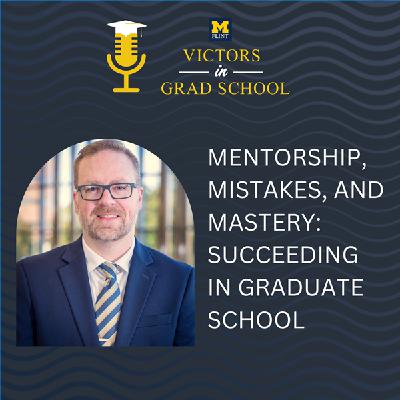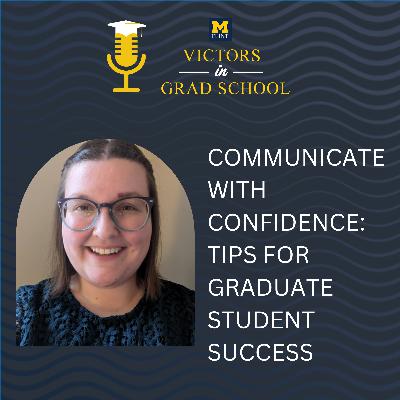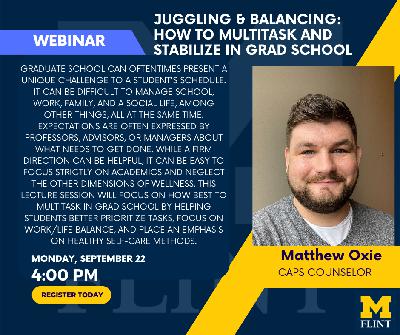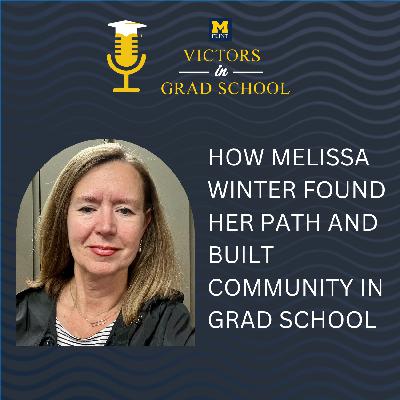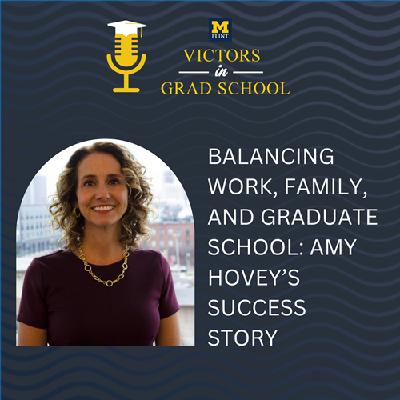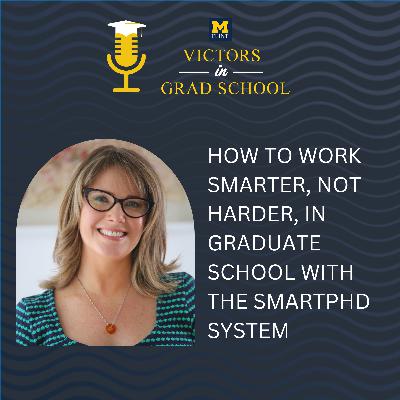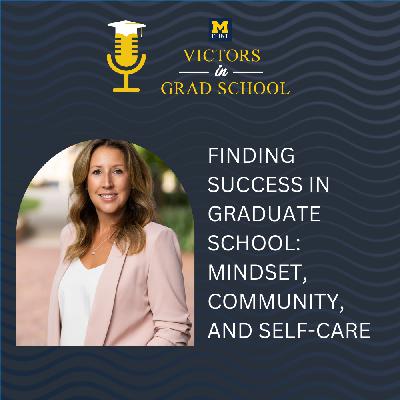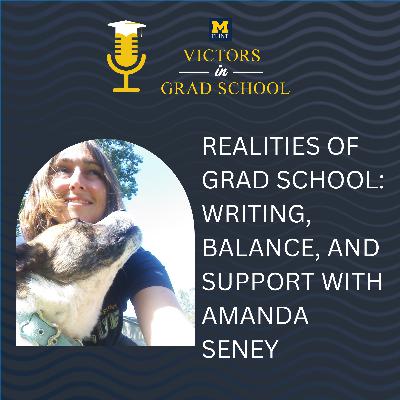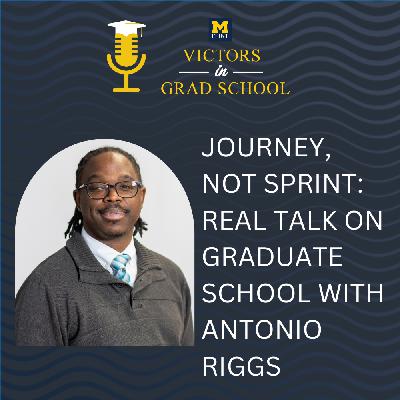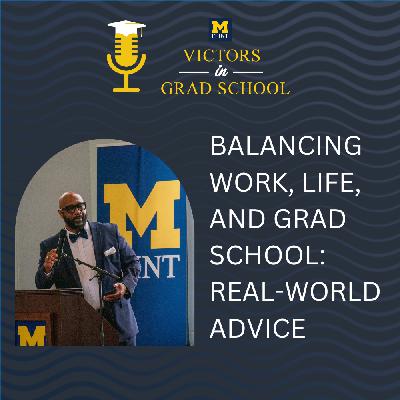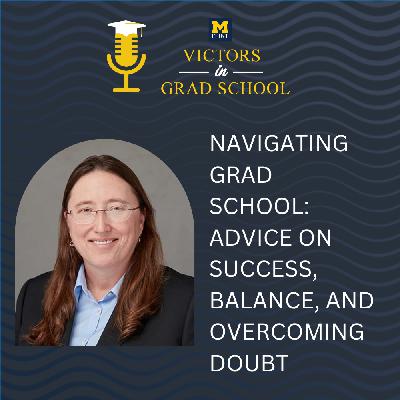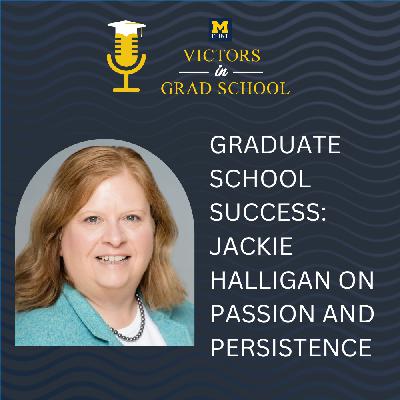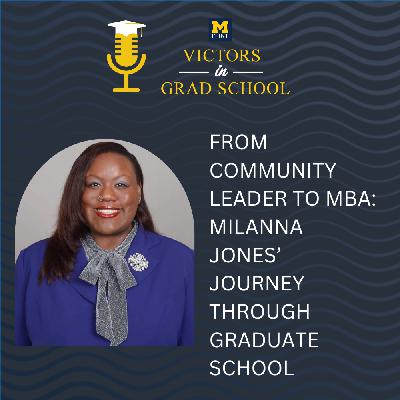Why Accreditation Matters When Choosing Your Graduate School Program
Description
If you're planning your path to graduate school—whether you're a first-generation student, a working professional, or a lifelong learner—there's a crucial factor you shouldn't overlook: accreditation. In a recent episode of the "Victors in Grad School" podcast, Dr. Christopher Lewis sits down with Daniel Sessions, Accreditation Officer at the National Association of Academic Excellence, to demystify accreditation and explain why it matters so much to your graduate journey.
Understanding Accreditation—Your Assurance of Quality
Dr. Lewis opens the conversation by highlighting how many students overlook accreditation while searching for the right program. Daniel Sessions breaks it down simply: think of accreditation as a seal of approval on your education. It stands for legitimate quality assurance and long-term value. When an institution or a program is accredited, it's been vetted by rigorous standards—giving you peace of mind that your time and investment will pay off after graduation.
The Difference Between Institutional and Programmatic Accreditation
One of the most important clarifications in the episode is the distinction between institutional and programmatic accreditation. Institutional accreditation is a broad assessment of a whole university or college. Programmatic accreditation, however, dives deeper into evaluating a specific program or area of study—often required for careers that rely on licensure or specific professional credentials, such as healthcare, accounting, or law.
Why You Need to Care About Accreditation
Dr. Lewis and Sessions stress that choosing an unaccredited or questionably accredited program can have real consequences, such as ineligibility for professional licensing, difficulty transferring credits, or even trouble qualifying for financial aid or future educational opportunities. Accreditation isn't just about prestige—it can impact your ability to practice in your field after graduating.
Essential Questions for Prospective Grad Students
Sessions encourages prospective students to ask admissions officers what role accreditation plays in their programs, verify accreditation status with official accrediting bodies, and consider how the school's reputation is reflected in the industry. Trust but verify—don't be afraid to dig deeper!
Ready to Learn More? Listen to the Full Podcast
Whether you're just starting to weigh your grad school options or you're narrowing your choices, this episode offers practical advice and insider insight that will empower you to make informed decisions. Listen to the full episode of "Victors in Grad School" to hear Daniel Sessions' personal journey, tangible tips, and deep dive into academic excellence.
Your pathway to graduate success starts with asking the right questions. Don't miss this essential conversation—give the episode a listen today!
TRANSCRIPT
Dr. Christopher Lewis [00:00:01 ]:
Welcome to Victors in Grad School, where we have conversations with students, alumni, and experts about what it takes to find success in graduate school.
Dr. Christopher Lewis [00:00:11 ]:
Welcome back to Victors in Grad School. I'm your host, Dr. Christopher Lewis, Director of Graduate programs at the University of Michigan, Flint. Really excited to have you back again this week. And as always, every week, you and I are on a journey together as you are going through and figuring out those steps that you are taking to prepare yourself to go in, go through, and even go out of attending graduate school. And that's why this show exists. It's here to be able to give you some hints, some tips, some tools, some things that you can learn from that'll help you to find success in that graduate school journey. I love being able to sit down and talk with you every week because there are things that you can do right now, things that you can do to prepare yourself, to make sure you're asking the right questions and making sure that you're prepared for identifying the right schools for you if you.
Dr. Christopher Lewis [00:01:02 ]:
If you're at the very beginning or that you're making sure that you know what to do as you're going through that school and as you're looking at the light at the end of the tunnel. Every week, I love being able to bring you different guests with different experiences that can help you do just that. And today we got another great guest. Daniel Sessions is with us. And Daniel is an accreditation officer for the national association of Academic Excellence Incorporated. And we're going to talk about that because I've talked about accreditation in the past. If you've ever gone to any of the webinars that I've done or you've heard me talk about. Things to look for when you're looking at schools, when you're considering different schools.
Dr. Christopher Lewis [00:01:40 ]:
And accreditation is one of those things that not everybody asks about. It's kind of in the background. Sometimes you see it on a website, but it is something that is important, and it's something that you should know about. So we're gonna be talking about that as well. But first and foremost, I'm really excited to have Daniel here. We're gonna have him talk a little bit about his own experiences as well. So, Daniel, thanks so much for being here.
Daniel Sessions [00:01:59 ]:
Thanks, Dr. Lewis, for having me. I appreciate it.
Dr. Christopher Lewis [00:02:00 ]:
Well, I'm really excited to be able to have you here today, to have you talk about not only accreditation, but some of your own graduate school journey. And I know that you did your undergraduate work at Southern Illinois University and then you graduated Went out into that workforce, graduated, got some experience, and at some point you made a decision, you made a decision that you wanted to continue and go on and get further education. Can you bring me back to that point and what made you make the decision that you wanted to take that next step?
Daniel Sessions [00:02:31 ]:
So I have to give a shout out to an identity piece that I have, and that is not only a first generation undergraduate student, but a first generation graduate student. And so at that point, where I decided to go back to graduate school was I had seen the benefits that formal undergraduate education had given me as I entered, entered into the workforce. And I knew I had a taste of the nice sweet fruit. And I realized that it could only be better if I furthered my education and deepened my understanding in a very specific specialization area. And so I went on about a 12 month experience process where I tried to decide, well, what was it? There are many different areas that you could go study that you could elect to do. In addition and above and beyond that, where could I go? And so ultimately I decided to enroll and go to graduate school to better my life and to give myself not only some upward mobility in a credential perspective, but, but also just to gain further light and knowledge in my life so that I could be the best professional that I could be through advanced education. Because I felt like I was made for that and I wanted to experience that myself.
Dr. Christopher Lewis [00:03:29 ]:
Now you just talked about that. You went through that process of looking at programs, looking at schools, figuring out what you wanted to do and where you wanted to go, and I guess bring me to that point, talk to me about what you did as you were looking and, and exploring those different schools. And I know you ultimately decided to attend Northwestern University to get a Master of Science in Strategic Communication and Law. What made you decide that Northwestern was the right school? And what made you decide that Strategic Communication and Law was the right program?
Daniel Sessions [00:04:01 ]:
So I was at a pivotal point in my adult career where I had spent the first just over a decade in clinical healthcare and had exited clinical healthcare to start teaching human anatomy and physiology at a local technical college. And I really had a departure point that I was grappling with. It was either double down and go back and go to graduate school in the form of clinical medicine, or specialize in a different area. And I loved working in education and I knew that higher education administration was something that I could see myself having a very long and rewarding career on. Now, around that same time frame, we were seeing a lot of change in the higher education space. And A lot of change in the regulatory space as it relates to oversight of education, the 2008 through 2010 and 11 timeframe. And I decided ultimately not to pursue and continue to pursue clinical healthcare, but to specialize in an area that would help me in higher education administration and strategic communications. I've always liked to talk, I've always liked to present.
Daniel Sessions [00:04:57 ]:
And it was just something that I felt as though was part of who I am and what I do. And so to be able to rally the allegiance of my associates through words and present material and clear and concise manners was something that I was looking for. And so as I evaluated Northwestern and suburban Chicago, not only the reputation of the institution, but also the program, as I evaluated it, just seemed like it fit my needs very well. And I was very excited



